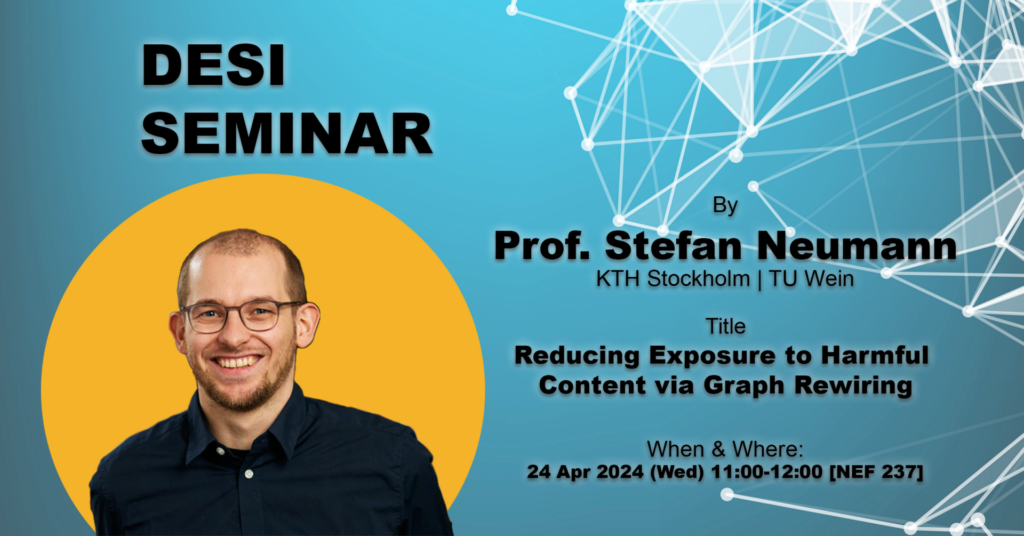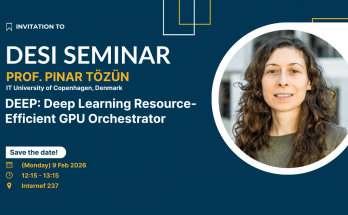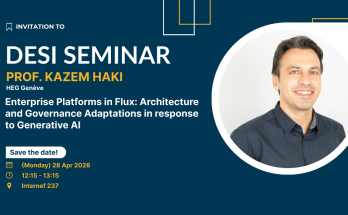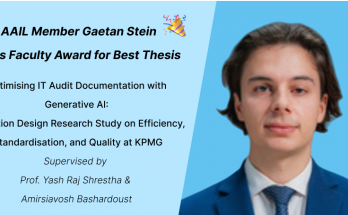
Dear all,
We would like to invite you to DESI seminar by Prof. Stefan Neumann (KTH Stockholm –> TU Wein)
When & Where: 24 April 2024 (Wed) @ 11:00-12:00 [Internef 237]
Title: Reducing Exposure to Harmful Content via Graph Rewiring
Abstract:
Most media content consumed today is provided by digital platforms that aggregate input from diverse sources, where access to information is mediated by recommendation algorithms. One principal challenge in this context is dealing with content that is considered harmful. Striking a balance between competing stakeholder interests, rather than block harmful content altogether, one approach is to minimize the exposure to such content that is induced specifically by algorithmic recommendations. Hence, modeling media items and recommendations as a directed graph, we study the problem of reducing the exposure to harmful content via edge rewiring. We formalize this problem using absorbing random walks, and prove that it is NP-hard and NP-hard to approximate to within an additive error, while under realistic assumptions, the greedy method yields a (1-1/e)-approximation. Thus, we introduce Gamine, a fast greedy algorithm that can reduce the exposure to harmful content with or without quality constraints on recommendations. By performing just 100 rewirings on YouTube graphs with several hundred thousand edges, Gamine reduces the initial exposure by 50%, while ensuring that its recommendations are at most 5% less relevant than the original recommendations. Through extensive experiments on synthetic data and real-world data from video recommendation and news feed applications, we confirm the effectiveness, robustness, and efficiency of Gamine in practice.
Paper: Corinna Coupette, Stefan Neumann, Aristides Gionis:
Reducing Exposure to Harmful Content via Graph Rewiring. KDD 2023: 323-334
https://dl.acm.org/doi/10.1145/3580305.3599489
Short bio:
Stefan Neumann is a WASP assistant professor at KTH Royal Institute of Technology in Stockholm, Sweden. In February, he will join TU Wien as a tenure-track assistant professor funded by a WWTF VRG grant. In his research, he aims to build a foundational understanding of modern data science methods and their impact on social networks. Stefan completed his Ph.D. in 2020 at the University of Vienna, where he was supervised by Monika Henzinger. His Ph.D. thesis has been awarded the Heinz Zemanek Award from the Austrian Computer Society and an Award of Excellence from the Austrian Federal Government.



